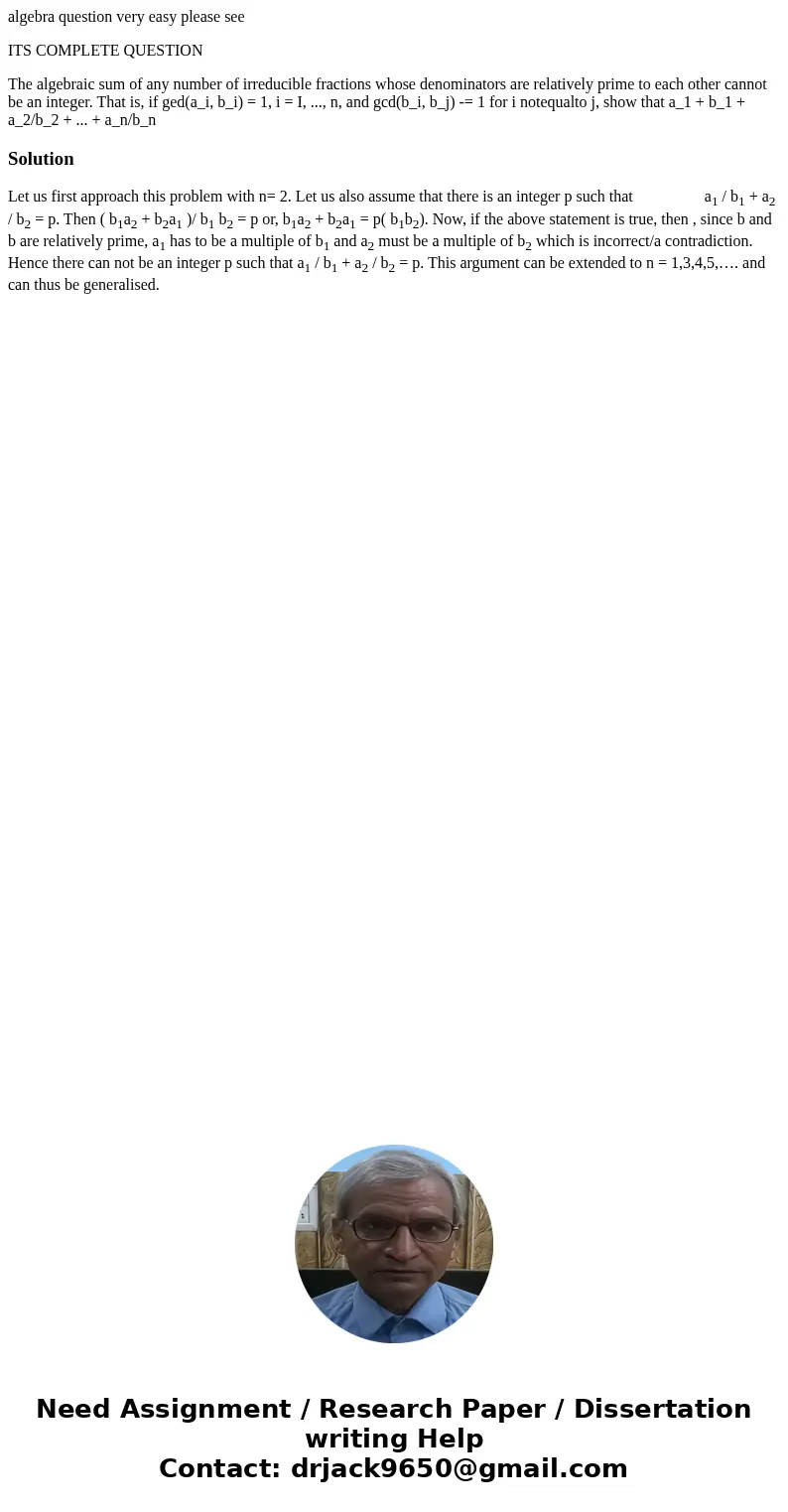algebra question very easy please see ITS COMPLETE QUESTION
algebra question very easy please see
ITS COMPLETE QUESTION
The algebraic sum of any number of irreducible fractions whose denominators are relatively prime to each other cannot be an integer. That is, if ged(a_i, b_i) = 1, i = I, ..., n, and gcd(b_i, b_j) -= 1 for i notequalto j, show that a_1 + b_1 + a_2/b_2 + ... + a_n/b_nSolution
Let us first approach this problem with n= 2. Let us also assume that there is an integer p such that a1 / b1 + a2 / b2 = p. Then ( b1a2 + b2a1 )/ b1 b2 = p or, b1a2 + b2a1 = p( b1b2). Now, if the above statement is true, then , since b and b are relatively prime, a1 has to be a multiple of b1 and a2 must be a multiple of b2 which is incorrect/a contradiction. Hence there can not be an integer p such that a1 / b1 + a2 / b2 = p. This argument can be extended to n = 1,3,4,5,…. and can thus be generalised.

 Homework Sourse
Homework Sourse